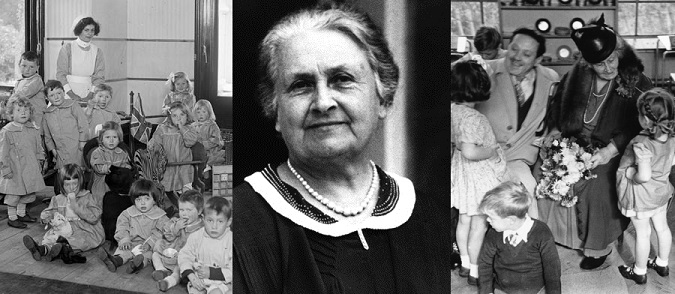
Maria Montessori graduated from the Faculty of Medicine of the University of Rome in 1896. She was the first woman to practice medicine in Italy. As a physician, Dr. Montessori became involved with young children. Through scientific observation, she came to see how children interact with their environment and the living things within it. She also observed how children learned through the scientific materials she provided. Montessori observed and identified specific phases of development in childhood. Her approach to education stemmed from a solid grounding in biology, psychology and anthropology and she came to believe that education of children is the only means to elevate society.
Throughout her life, she continued to observe children around the world and found that the laws of development she had recognized were universal and inherent in children of all races and cultures.
Maria Montessori’s work is not a cut and dry education method that can be tied down to materials, marks, and assignments. Her vision was to find a way to help children fulfill their potential by involving them in their own education.

